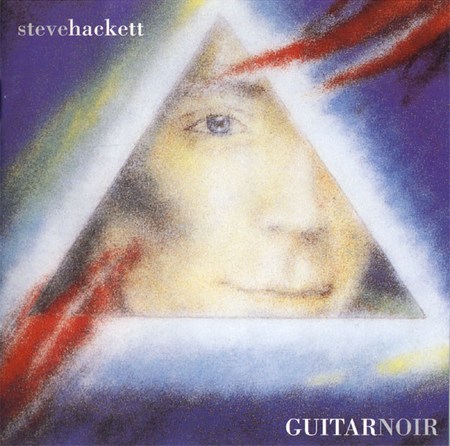|
|
|
01 |
Lost In Your Eyes |
|
|
|
04:10 |
|
|
02 |
In The Heart Of The City |
|
|
|
04:32 |
|
|
03 |
Sierra Quemada |
|
|
|
05:05 |
|
|
04 |
Vampire With A Healthy Appetite |
|
|
|
05:20 |
|
|
05 |
Take These Pearls |
|
|
|
04:12 |
|
|
06 |
Little America |
|
|
|
04:41 |
|
|
07 |
There Are Many Sides To The Night |
|
|
|
06:56 |
|
|
08 |
Walking Away From Rainbows |
|
|
|
03:10 |
|
|
09 |
Like An Arrow |
|
|
|
02:49 |
|
|
10 |
Dark As The Grave |
|
|
|
04:37 |
|
|
11 |
Paint Your Picture |
|
|
|
02:59 |
|
|
12 |
Tristesse |
|
|
|
03:58 |
|
|
13 |
Cassandra |
|
|
|
03:42 |
|
|
|
| Studio |
The Basement |
| Country |
United Kingdom |
| Cat. Number |
8008 |
| UPC (Barcode) |
745988800821 |
| Packaging |
Jewel Case |
| Spars |
DDD |
| Sound |
Stereo |
|
|
|
Guitar Noir
Steve Hackett
Review by Mike DeGagne
Steve Hackett's later material is somewhat different from his '70s and '80s work, in that the guitar playing tends to be less progressive and lengthy, verging more on rock-blues and basic string arrangements. The emergence into this style is showcased on Guitar Noir, as Hackett displays a more mature side to his instrumental prowess. Each song is given one line of interpretation from Hackett in the liner notes, as the songs range from the life of a prostitute to the onslaught of television in the household. Only two of the 12 songs are without vocals, but words have no affect on Hackett's beautiful passages anyway. Hackett even plays harmonica on "Lost in Your Eyes" and "Vampyre With a Healthy Appetite," a tune about stolen pints of blood from a New Orlean's hospital. As a guitar player first and foremost, the stories behind each song tend to get lost in the instruments, which also include light keyboards, but this doesn't hinder the atmosphere of any of them. Hackett makes the guitar sound somber when it has to be, or tranquil and alluring, so every tune casts it's own shadow of mood and feel. His intricacies are somewhat missed from past progressive albums, but he doesn't have to play extended solos to be fully appreciated.
Guitar Noir
Hidden in the dark recesses of the human mind exists a path previously trodden by certain artists of the caliber of Brel, Brecht and, perhaps, their American counterparts in Jim Webb and Leonard Cohen. Within their work are found songs where narrative is king - in other words a full subscription to the storytelling tradition.
It is into this mould that Steve Hackett more easily fits than the world of the "guitar hero" with its self imposed limitations. Yes, the guitar, that "other" voice which rarely comes truly alive in the hands of most players is allowed to inhabit the same regions that are usually the exclusive domain of opera singers ...
"Guitar Noir" c 1993 Kim Poor
Sierra Quemada 5.19
Take These Pearls 4.14
There Are Many Sides To The Night 7.23
In The Heart Of The City 4.34
Dark As The Grave 4.38
Lost In Your Eyes 4.56
Little America 4.55
Like An Arrow 2.51
Theatre Of Sleep 3.03 Walking Away From Rainbows 3.10
Paint Your Picture 2.57
Vampyre With A Healthy Appetite 5.29
Tristesse 4.01
Sierra Quemada (demo) 4.30
Take These Pearls (Rough Mix) 4.11
In The Heart Of The City (original version) 4.19
Vampyre With A Healthy Appetite (demo) 4.4
"If you eliminate percussion and decay you're left with the essence of the note, which is more characteristic of a voice or violin" ... as Hackett says.
Guitar Noir is an album which highlights the shaded corners of the instrument - at times sombre, occasionally hilarious, but ultimately filled with lyrically intensive observations about the condition of the unsung majority.
Steve Hackett Vocals, Guitar, Harmonica, Stepp & Rainstick
Julian Colbeck, Aron Friedman & Nick Magnus Keyboards
Nick Sykes Additional Keyboards
Dave 'Taif' Ball Bass
Hugo Degenhardt Drums
Bimbo Acock Clarinet
Produced by Steve Hackett.
Executive Producer Billy Budis.
Artistic Direction Kim Poor.
Recorded and mixed in The Basement.
Re-Mastered 1997 by Roger King
